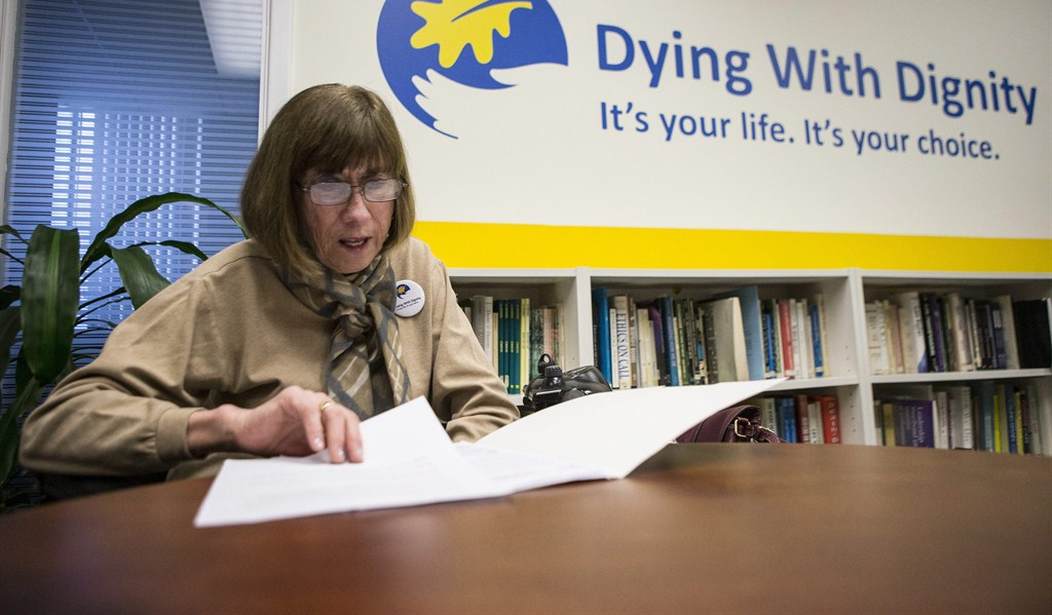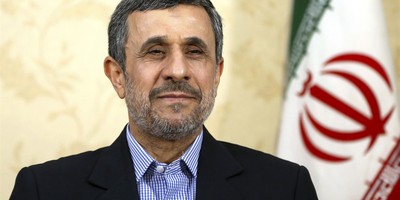The secular progressive tactic of advocating death in the name of liberty continues, this time in the state of California, where Governor Jerry Brown recently signed a bill legalizing physician-assisted suicide in that state. This makes California the fourth state to embrace the practice, after Oregon, Washington, and Vermont. Commenting on his decision to sign the bill, Governor Brown remarked that were he afflicted with a painful terminal illness he would not want to suffer in his final days of life, the implication being that physician-assisted suicide is a means for individuals to free themselves from the physical suffering and indignity that natural death entails. The Governor's reasoning echoes the leading argument employed by assisted suicide advocates, who in keeping with the rhetorical tactic of their ideological cousins in the pro-abortion movement, equate "dignity" with "choice." Unfortunately, as with the abortion debate, the "choice" rhetoric of the right-to-die movement eclipses critical moral and ethical questions which ought to be at the forefront of the debate.
While the concept might offend modern sensibilities, the fact is that up until quite recently society has affirmed the idea that human beings are special. This inherent specialness was articulated with particular eloquence in the Declaration of Independence, and codified into law in the Constitution. According to this tradition, men are more than merely the most advanced animal and more than mere matter. They are imprinted with the image of the divine, creatures made in the image of God vested with inherent worth, value and dignity. This value is not diminished by the age or state of health of the human person – it is immutable. As Francis Schaeffer and C. Everett Koop noted in their book, Whatever Happened to the Human Race?, "Each man, woman and child is of great value, not for some ulterior motive such as wealth or power or a sex object or 'the good of society' or the maintenance of the gene pool – but simply because of his or her origin."
If this is true, then it begs the question of whether suicide is really a humane and dignified choice. Anyone who has witnessed a loved one battle a terminal illness knows the anguish and fear that accompanies the final months, weeks, or days of life. The desire to be free of pain and suffering is natural, and the desire to bid farewell to this life in a dignified manner is something that should be respected. But dying with dignity does not require suicide. The scenario posited by Governor Brown, in which a dying person is given the option to die in pain or die with dignity, presents a false choice and assumes that there are only two alternatives at the end of life – pain or death.
Recommended
On the contrary, one need not commit suicide to avoid a painful death. Properly employed, modern medicine has the tools to mitigate pain. Hospice care, for example, employs a multi-disciplinary approach to ensure that terminally-ill patients endure their final time on earth with dignity – free from pain and nourished physically, emotionally, mentally and spiritually. Hospice care does not seek to stop the dying process, rather the goal of hospice care is to make a difficult time as comfortable and peaceful as possible for both the patient and their loved ones. The important distinction between palliative care and physician-assisted suicide is that the first respects the inviolability of human life in spite of the difficulties presented by illness while the second rejects the sanctity of life in favor of an expedient escape from pain and fear.
The philosophy animating the right-to-die movement is that life's value is measured only by material standards. Once those standards are no longer being met, one's life no longer has value. With quality of life as the reigning criteria, not only the terminally-ill, but the disabled, the elderly, and the infirm become prime candidates for "dignified" death by suicide. In contrast, those who view life as a sacred gift from God believe that every stage of life is precious and holds unique meaning. This is true even at the end of life. There is meaning to be found in suffering, not only for the person suffering, but for those providing care and comfort to the sufferer. A person's final time on this earth is a time for reflection and absolution, a time to share love and forgiveness. For those providing care, this time provides an invaluable opportunity to provide comfort and succor in a most profound way, and it affirms the fragile and precious nature of life. Thus, the right to die is not a simple matter of "choice." Its implications stretch much further than the wishes of any one individual. It is incumbent upon policy makers to understand these implications, and to not be swayed by the misleading rhetoric of choice, or the allure of the bottom line.
In his seminal commentary on the role of Christianity in the modern world, Ethics, theologian Dietrich Bonhoeffer said this regarding uniqueness of human life as the image bearer of God: "God has reserved to Himself the right to determine the end of life, because He alone knows the goal to which it is His will to lead it. It is for Him alone to justify a life or to cast it away."
As our society becomes increasingly secularized, we can expect that humans will lose their status as image bearers of the divine. Once the belief in God has been virtually eradicated from the collective consciousness, then there will be nothing to shield society's most vulnerable members – the sick and suffering and desperate – from the influence of those who promote a far less noble view of humankind.
























Join the conversation as a VIP Member